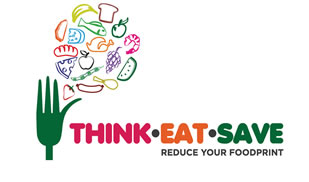
Today marks the 40th time that the world has come together to raise awareness of critically important issues on World Environment Day. This year’s theme, Think Eat Save:Reduce Your Foodprint, zeroes in on an issue that all people, from all walks of life, from all the countries in the world, can relate to and understand.
According to a new paper launched today by the World Resources Institute (WRI) and UNEP in celebration of World Environment Day, about one-third of all food produced worldwide, worth around US$1 trillion, gets lost or wasted in food production and consumption systems. When this figure is converted to calories, this means that about 1 in 4 calories intended for consumption is never actually eaten.
In the wake of huge food price spikes, consequent social unrest, famine, food insecurity and significant world hunger, these statistics are not only shocking, but environmentally, morally and economically reprehensible as well.
Yet, there is always hope. Inefficiencies as large as these suggest the potential for even larger savings opportunities. WRI suggests the following five strategies:
- Develop a food loss and waste measurement protocol.
- Set food loss and waste reduction targets.
- Increase investment in reducing postharvest losses in developing countries.
- Create entities devoted to reducing food waste in developed countries.
Accelerate and support collaborative initiatives to reduce food loss and waste.
This year’s global World Environment Day host is Mongolia, home of one of the world’s fastest growing economies that is aiming for a smooth transition to a green economy and civilization. Mongolia is not a big waster of food, yet some of its traditional practices shed light on the food saving challenges that we face today.
Mongol general Chinggis Khan and his troops used borts, a food made from condensing the protein of an entire cow into an easy to carry, long-lasting form the size of a human fist. It did not require refrigeration, providing a meal equivalent to several steaks when the protein was shaved into hot water.
So what can we all do, as individuals, to help prevent food waste? There are many different strategies. From requesting smaller portions to eating leftovers to composting and knowing expiration dates (most foods can be safely consumed well after their sell-by dates), we can all work to significantly reduce the amount of food waste that we produce.
Think
Be a smart shopper and think about what you are buying and when it will be eaten. Wasting food is often a subconscious act – become aware of how much food you throw away. Plan meals and use shopping lists. Bring your leftovers home from restaurants in reusable containers.
Eat
Become a more mindful eater. Eyes bigger than your stomach? Request smaller portions and become a leftovers guru.
Save
Save your food, save your money and save the environment. Donate to food banks and become a conscious consumer.
This campaign is just the beginning. Join us, and let’s make a difference together today!



 View All Blog Posts
View All Blog Posts